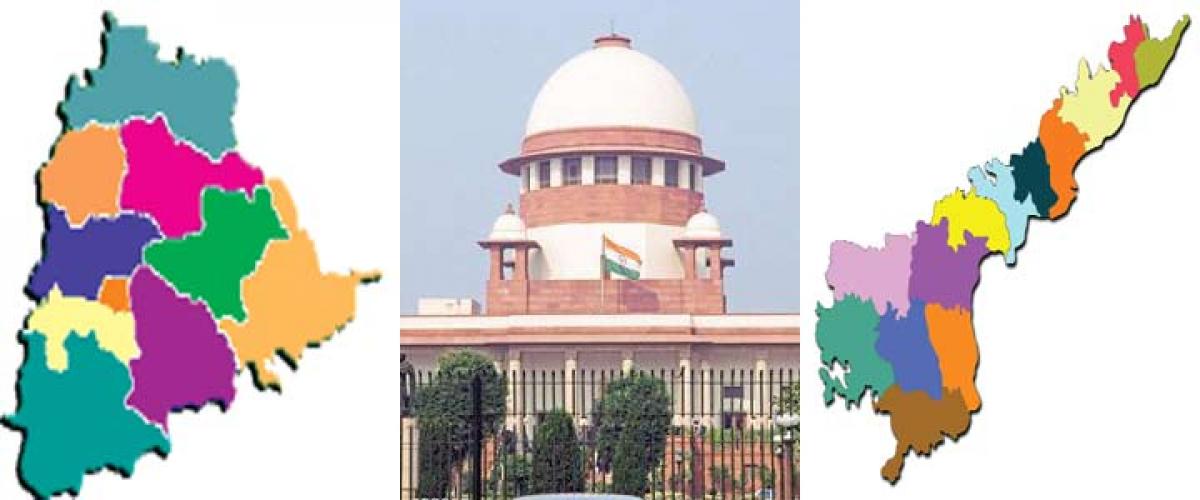It’s unfair

The Supreme Court has dismissed the petition of Telangana for reallocation of Krishna waters among four States in the wake of bifurcation.
The Supreme Court has dismissed the petition of Telangana for reallocation of Krishna waters among four States in the wake of bifurcation.
It’s unfair to treat the matter as a dispute between the two Telugu States as Telangana was not born when Brijesh Kumar tribunal gave its order.
The tribunal order still remains challenged and is yet to come into force. A State cannot be denied its right to be a party to the dispute.
In fact, the struggle for bifurcation of united Andhra Pradesh was on the premise that the region’s interests in water allocation were compromised.
Since the bifurcation of the State, Andhra Pradesh fears injustice in the release of water from the upper riparian State. In such a situation, revisiting the tribunal order is in the best interests of the two States.
The apex court reportedly asked whether there should be reallocation every time there is a bifurcation of the State. The judicial pronouncements cannot be made on hypothetical assumptions. The bifurcation of States is not a periodic exercise to warrant such a debate.
Telangana was not in existence when the tribunal heard the arguments of riparian states and announced its award. It, therefore, cannot be condemned to a share, without having its arguments heard.
The united Andhra Pradesh and now the successor States have serious objections to the tribunal’s award. Instead of looking at these objections alone, it would be in the fitness of things to have a four-way fresh look.
There are three aspects in the entire dispute over the Brijesh Kumar Mishra Tribunal award and the subsequent developments: First, the plea of the united Andhra Pradesh to comprehensively review this tribunal award; Secondly, review of the agreements reached between Telangana and Andhra Pradesh at the Apex Board meeting; and thirdly, implementation of the Section 89 of the Andhra Pradesh State Reorgansiation Act.
These three aspects need to be looked at in totality. Any isolated view of the above three aspects would create contradictions and further complicate the Krishna water sharing among the riparian states.
Any attempt to see the sharing of Krishna waters as a dispute between the two States only may result in undesirable tensions between Andhra Pradesh and Telangana.
It can also lead to protracted legal battles between the two States. The demand for reorgansiation of united Andhra Pradesh and subsequent concerns of residuary state of Andhra Pradesh are centred around long-pending water disputes.
Both the States are set to lose due to arbitrary allocation of Krishna waters by the Brijesh Kumar Mishra tribunal. The allocation of surplus water, the dependability ratio etc., have done injustice to these two lower riparian States.
The complaints over illegal use of water by the tow upper riparian States – Maharashtra and Karnataka – were not heard by the tribunal. Now, the apex court’s latest decision would further create trouble for both the states.
The fallout is a result of the two States dealing with the matter separately. Things would have been different if these two States had unitedly fought for justice.
Even Andhra Pradesh wants four-way reallocation of Krishna waters. At least now, the two Telugu states should evolve a common strategy to respond to the challenges thrown up by the KWDT-2 fiasco.














